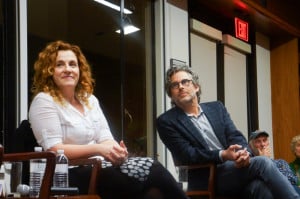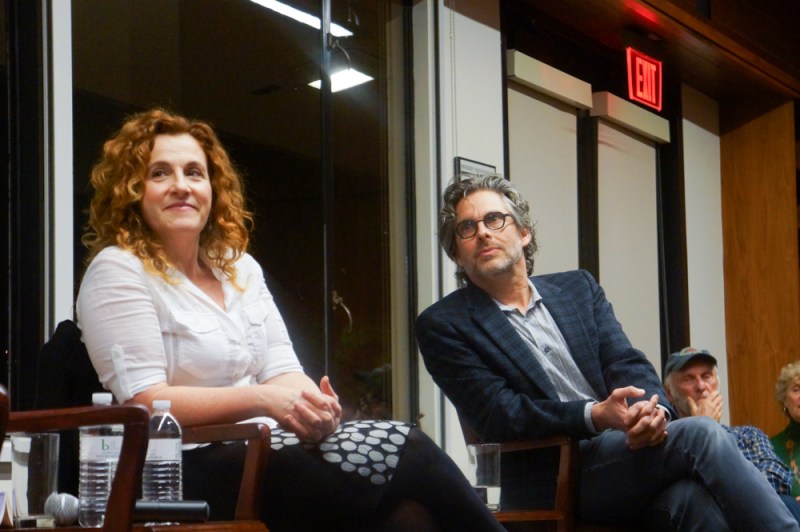
Another Look, a book club founded by the English Department to discuss books deemed to have not yet received their time in the spotlight, took on Philip Roth’s ‘The Ghost Writer’ on Tuesday night.
Tobias Wolff M.A. ’78, professor of English and director of Another Look, moderated the discussion, which also featured writers Ayelet Waldman and Michael Chabon. Wolff said that he aimed to give the book more attention.
“’The Ghost Writer’ is one of Roth’s books that might have fallen out of the range of serious readers when compared with some of his greater monumental works,” Wolff noted.
The 1979 novel tells the story of Nathan Zuckerman, a young writer who travels to a writer’s colony. There, he meets E.I. Lonoff, one of his inspirations as a writer, and Amy Bellette, a woman living anonymously in the United States after the Holocaust whom Zuckerman suspects is Anne Frank.
Panel members looked at elements in Roth’s lesser-known novel, ranging from the influences in the book to the author’s thoughts about the writing process to the reader’s relationship to the work.
“There’s an expectation as a Jewish writer in terms of what’s going to be your Holocaust book,” Waldman said. “[Roth]…approaches this terrifying subject in a masterful way.”
Wolff also addressed Roth’s protests about being called a Jewish writer.
“People reading Roth understand that he’s American and a writer and a Jew, and that he writes about these themes,” Wolff explained. “He’s not being held in a category.”
Waldman first read the novel when she was a young girl, calling the experience “magical.”
“It was one of the first times I noticed how people write and what a writer’s voice sounds like and how different Roth’s voice sounds from the day-to-day or from other writers,” she said.
Chabon also spoke to Roth’s influence on his work. He found himself relating to Zuckerman strongly when he first read the novel at the age of 23 before starting his Master of Fine Arts studies.
“I was the same age as Nathan and identified with the sense of anticipation he has for the career he hopes he’ll have,” he said. “I became so captivated by the possibility that some life like what he anticipates might lie in store for me as well.”
The panel further explored the way in which real life can intersect with fiction, noting the similarities between Zuckerman and Roth, and between Roth and characters in his other pieces of fiction.
“He almost always writes about a man of his age, going through similar experiences,” Waldman said. “But that’s the joy of fiction. You can take those real life experiences and then make stuff up and mix it all together in this delightful stew. You play the game on purpose.”
For Waldman, reading this book a second time in preparation for this talk helped her remember what it means to be a writer.
“I just told myself to get back to work,” she said. “I know what that is: getting up in the morning and sitting down at your desk and doing your work. When I finished my last novel, it’s like I forgot that, but this book helped remind me what my job is.”
Wolff said that Another Look aims to do just that—to refresh interest in the books the club chooses to spotlight.
“We talk about television shows all the time,” he said. “Why shouldn’t we talk about books in the same way?”
Contact Josee Smith at jsmith11 ‘at’ stanford ‘dot’ edu.
